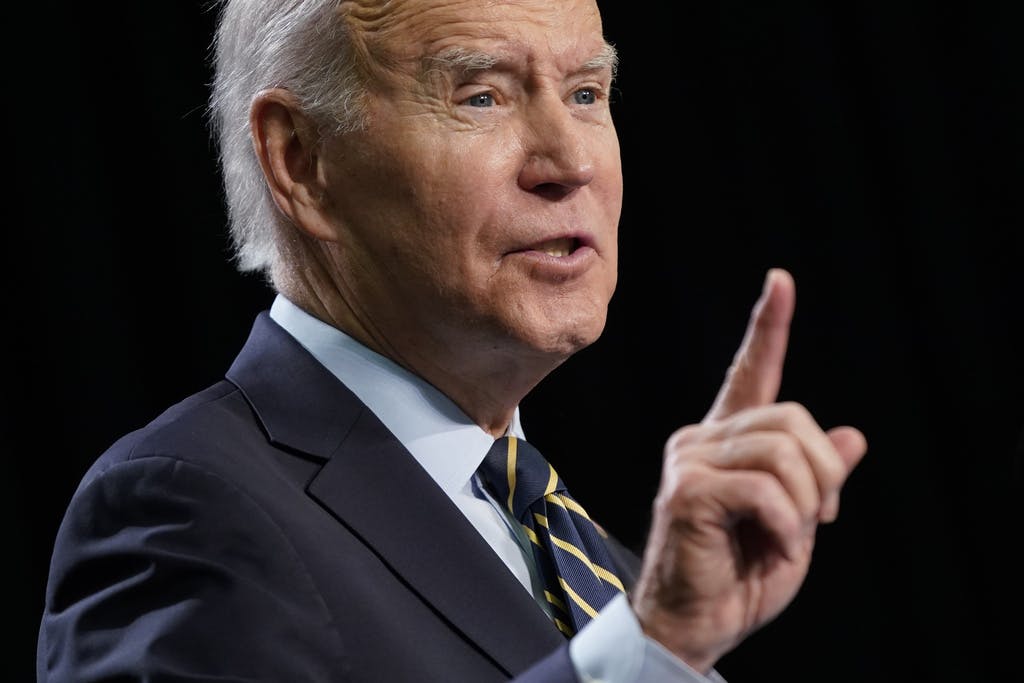Biden White House, Home of the ‘Whoppers’
Or the ‘Double Whopper’ — serving two for the negotiated price of one.

Given the Biden administration’s spinning of the Inflation Reduction Act, there seemed to be a certain logic, even an element of fair play, in allowing Medicare to negotiate drug prices. After all, if Europe can do it, and most major American buyers of drugs, why discriminate, at substantial cost to taxpayers, against Medicare? Sounds plausible, even more equitable — if true. Alas, it’s not.
Too many of today’s journalists have forgotten that indispensable tagline: If true. How else to explain that so far, the Biden administration has gotten away with two whoppers in its characterization of the Medicare provisions of the Inflation Reduction Act. These two falsehoods undermine the rationale for Medicare price negotiation.
This verdict overlooks the catastrophic effect this legislation will have on drug discovery. The first whopper is that somehow Medicare is currently prevented from negotiating drug prices and is at the mercy of the greedy pharma companies. The fact of the matter is that Medicare is already negotiating like any large buyer of pharmaceuticals under an employee healthcare plan.
It contracts with benefit managers and health plans, through Part D and Medicare Advantage plans, to negotiate drug prices. These health plans negotiate prices and rebates on behalf of their clients and effectively create significantly discounted pricing. Volume will affect the discount. So in most cases, by flexing its muscle, Medicare is already benefiting from aggressively negotiated pricing.
For instance, in the case of Eliquis, one of the drugs selected among the first 10 to be subject to IRA provisions, Medicare already receives a discount. It provides a price meaningfully below most other drug buyers. Forget about any cost-benefit analysis that would show Eliquis, by reducing thromboses and strokes, has saved the healthcare system billions of dollars.
Also on the Medicare IRA list are Johnson & Johnson products Imbruvica and Xarelto. Johnson & Johnson has reported that it paid rebates of 52 percent off list prices to Part D plans in 2022. In addition to one of the lowest prices available by virtue of negotiations, Medicare, unlike other drug buyers, has received payments directly from the pharma companies.
This subsidizes the so-called doughnut hole. This is the infamous gap in Medicare Part D coverage that the consumer was supposed to pay. While the data are confidential, the combination of third party negotiations plus the doughnut hole payment, which is assessed by Medicare to each pharma company without any negotiation, means Medicare has historically paid considerably less than employer-based plans.
So, when it comes to actually negotiating, Medicare is already well positioned. Which brings us to the second big lie in the Inflation Reduction Act. It isn’t legislating anything that a dictionary would define as negotiating. What the act is doing is effectively authorizing Medicare to dictate prices. This was the one power which was denied Medicare in the original enabling legislation.
We say dictate because the penalties for failing to accept the price being tendered by Medicare are so onerous that the pharma company has no choice but to say: Yes, sir. Pharma companies that do not participate are subject to penalties of between 185 percent and 1,900 percent of target product sales. Like any good Mafia-style negotiation, it’s an offer that cannot be refused.
So basically, the justifications given for the drug price-fixing provisions under the Inflation Adjustment Act are two bald-faced lies, or, one might say, whoppers. The “big lie” is a governing tactic usually associated with totalitarian regimes: Hitler’s Germany, say, or Stalin’s Russia. To use them to enable Medicare to dictate drug prices marks just how ill-conceived and ideological this legislation is.
Informed opinion has universally argued that this legislation will decimate new drug development. While the absence of new pharmaceutical cures will save money on the missing drugs, it will undoubtedly result in higher overall healthcare costs given the costly care requirements for untreated maladies, particularly of the elderly. How ironic that Medicare’s customer base, senior citizens, will be the main losers in this legislation.

